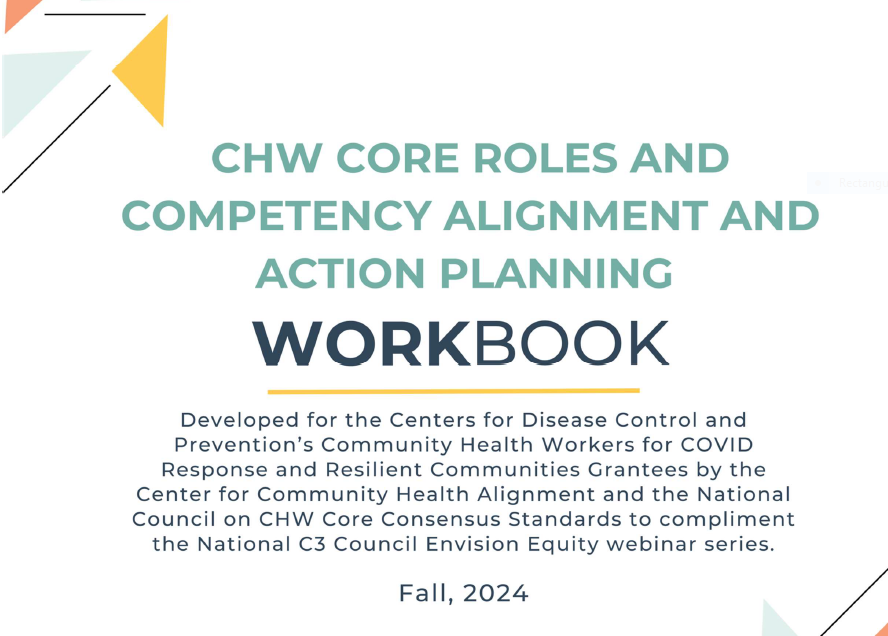CHW Program Best Practice Toolkits
Community Health Worker Best Practice Toolkits for Designing, Implementing, and Showing the Impact of CHW Programs
CCHA’s Best Practices for CHW Programs Toolkit (Parts 1-4)
The Center for Community Health Alignment convened both Community Health Worker (CHW) subject matter experts and CHWs for over a year and a half period to identify best practice strategies for designing, implementing and showing the impact of the Community Health Worker (CHW) Models. A series of toolkits have been developed in collaboration with Community Health Workers and CHW allies with extensive expertise in CHW model implementation in both community-based and healthcare settings. Additionally, CCHA has worked to co-create population-focused toolkits to include Perinatal CHW models and Rural Health CHW models. It is our hope that organizations will find the best practices and resources beneficial to designing effective programs across diverse population-based and geographic areas.
The National Association of Community Health Workers (NACHW) and the Association of State and Territorial Health Officials (ASTHO) recently released a toolkit for featuring several tools and resources developed by our Community Health Worker Institute and our CHW ambassadors. Read more.
Section I: Designing Community Health Worker Programs
This first toolkit section will help you with:
- Preparing your team to implement CHW programs.
- Finding the right CHWs for population served.
- Recruiting, hiring, and onboarding CHWs.
- CHW training and continuing education.
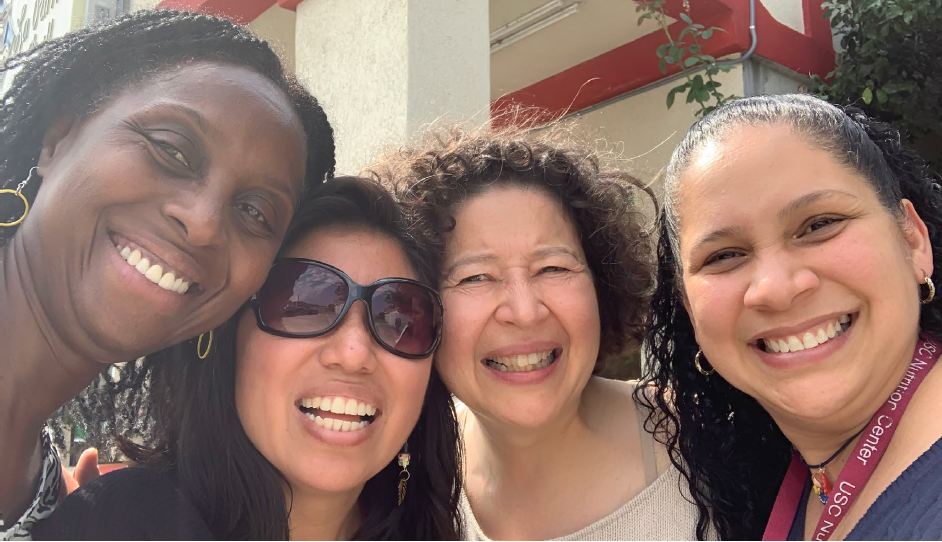
Section II: Working Effectively with Community Health Workers
This second toolkit section will help you with:
- Developing new or revising existing workflows.
- Assessing individual and community needs and identifying populations that CHWs can serve.
- Establishing CHW Caseloads.
- Documenting CHW Activities.
- Establishing effective team communication and feedback loops.
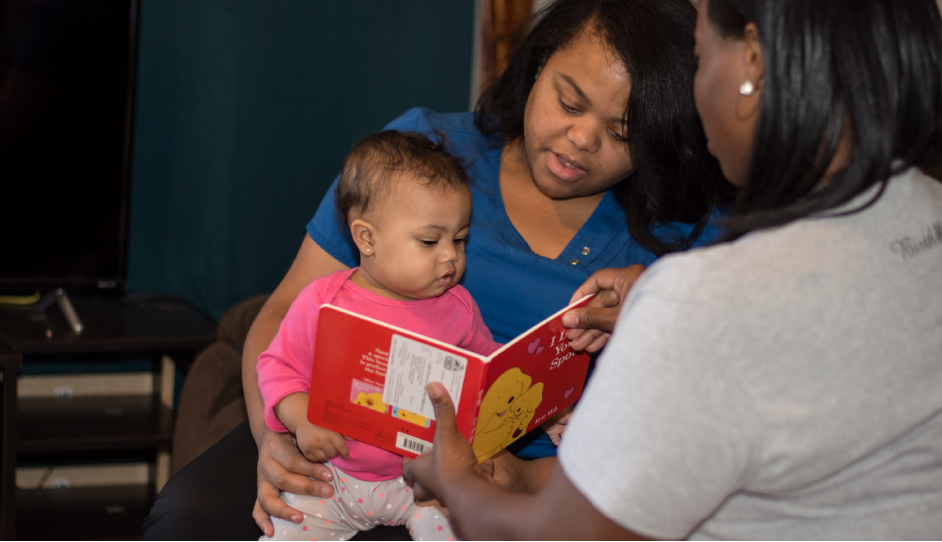
Section III: Understanding, Screening, and Responding to Social Determinants of Health
This third toolkit section will help you with:
- Facilitation of a planning process for screening and responding to SDOH needs.
- Assessment for fit for organizations to determine which screening tool(s) provide the best fit based on individual needs (e.g., identifying domains to screen for).
- Assessment of organizational capacity to address SDOH (organizational services, resources and closing the loop on referrals).
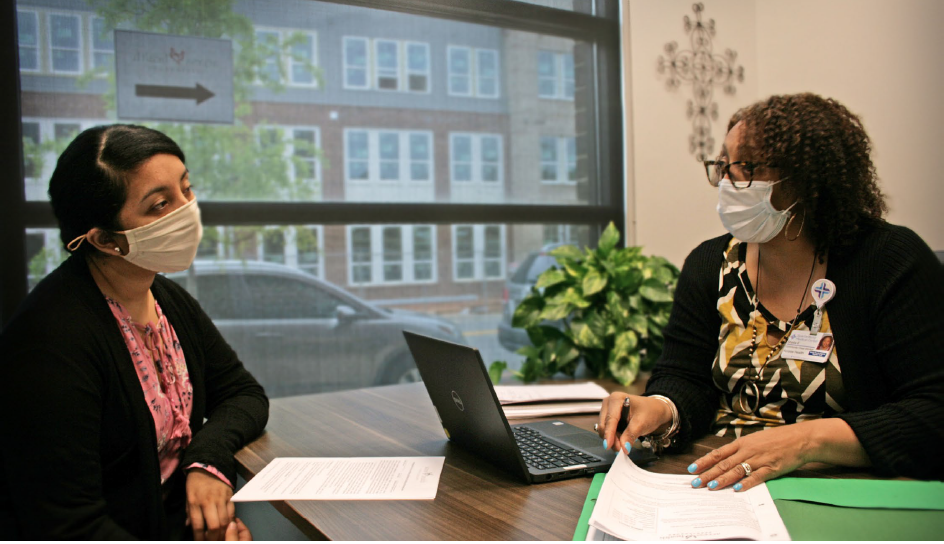
Section IV: Evaluating a Community Health Worker Program
This fourth toolkit section will help you with:
- Choosing the right information to collect and report.
- Selecting the appropriate type of evaluation to fit the goals of your organization.
- Understanding ways to disseminate your evaluation reports.
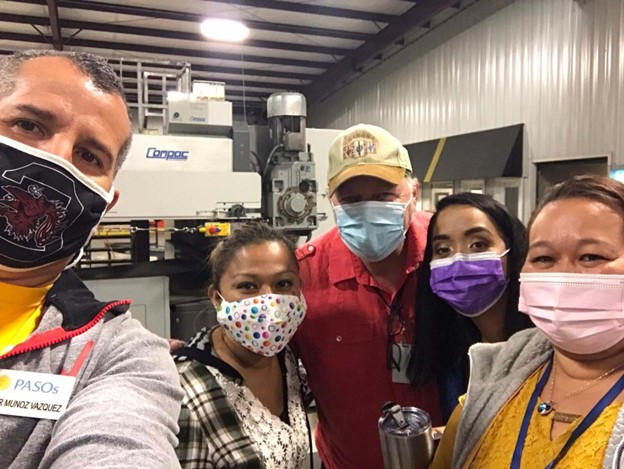
CCHA’s Perinatal CHW Toolkit
This perinatal CHW toolkit focuses on perinatal health and will instruct community leaders on how to find the ideal fit for families, the best practices for perinatal CHWs, the resources and data that you will need to support PCHWs, and mentoring programs to help you along the way.
Why focus on the perinatal period in South Carolina?
The health of infants and mothers serves as an indicator, of the overall health of a community. In South Carolina, 364 babies died in 2020 before reaching their first birthday and approximately 14 mothers died in the perinatal period. Our rates of infant and maternal deaths are significantly higher than the national rate.

In South Carolina, we lose a baby every day and a mom every month.
Many of these deaths are avoidable.
We can and must do better.
There are clear racial inequities in infant and maternal mortality – African-American babies and mothers die at more than twice the rate of whites. Racial disparities in prematurity and low birthweight, the most common cause of infant mortality, persist even when African-Americans don’t have other common risks (such as tobacco use, obesity, chronic diseases, Medicaid eligibility, or low education level).
It’s clear that improving birth outcomes, and particularly racial inequities in birth outcomes, is a complicated and dynamic challenge that may not be solved through clinical care, behavioral change, or social programs alone. This is why pairing perinatal families with CHWs is a promising intervention – CHWs tailor their efforts to each family’s own strengths, aspirations, and needs, and can help each family navigate through the intense adjustments of the perinatal period and services available to them.
Perinatal CHWs Programs in South Carolina
BirthMatters’ community-based doulas provide individually tailored, culturally congruent care and advocacy for pregnant and postpartum participants through information, education, and physical, social, and emotional support.
SC Office of Rural Health / Family Solutions (SCORH / FS) provides targeted case management, outreach and health education services to pregnant and postpartum women and their infants in four rural, underserved counties of South Carolina (Orangeburg, Allendale, Bamberg, and Hampton).
PASOs supports Latino communities throughout South Carolina with CHWs that focus on education, advocacy, and empowerment with families.Their CHWs are all bilingual and bicultural community leaders who go through PASOs’ 80-hour CHW training that is accredited by the SC Community Health Worker Credentialing Council.
CCHA’s Diabetes CHW Change Package

This diabetes CHW change package shares the core components of the CHW DPM model identified during a 3-year pilot project working with five federally qualified health centers (FQHCs) in South Carolina. The focus of the “CHWs Reducing Diabetes in South Carolina” project was to build the capacity to develop and/ or enhance the integration of the CHW model to improve the DPM of highrisk patients. High-risk patients were identified as those with an A1C of 9.0 and above and at least one unmet social need (social drivers of health).
Why Look at Diabetes Data in South Carolina?
The American Diabetes Association states that approximately 531,143 people in South Carolina (SC), or 13.2% of the adult population, have been diagnosed with diabetes. An additional 123,000 people in South Carolina have diabetes but don’t know it. Over one million people in South Carolina, or 34.9% of the adult population, have prediabetes (defined as blood glucose levels that are higher than normal but not yet high enough to be diagnosed as diabetes).
2024 National C3 Council Workbook
This resource was prepared as a workbook for implementing the Community Health Worker (CHW) Core Roles and Skills from the National Council on CHW Core Consensus Standards (National C3 Council), formerly the C3 Project, into CHW programs with a focus on building and strengthening CHW skills and qualities in different settings. This workbook was developed collaboratively by the National C3 Council and the Center for Community Health Alignment (CCHA).
Specifically, the workbook was prepared using the training materials developed for a series of three National C3 Council Webinars geared to COVID Response and Resilient Communities (CCR) initiative Grantees. The series and the related workbook were sponsored by Envision Equity held from June 2023 – August 2023.
